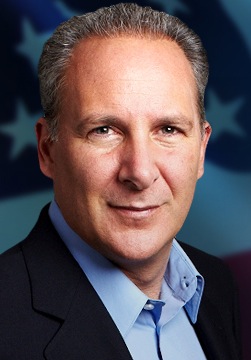Wall Street Wakes Up
In a commentary last week, I compared the recent surge in gold prices to the death of a canary in a coal mine. This week it appears that a few of Wall Street's miners have reluctantly gotten a whiff of the stench and are now scrambling for the exits. In fact, the first week of the fourth quarter has wiped out all of the gains of the proceeding quarter.
It started on Monday when the Institute of Supply Management (ISM) released the largest monthly increases in prices paid in fifteen years, and the largest back-to-back monthly gain in over fifty years. In the days that followed, numerous companies announced price increases and several Fed officials chimed in with comments acknowledging what should have already been obvious to all; that inflation is not as well contained as they had previously thought.
Making matters worse, on Thursday several European central bankers made similarly hawkish statements, raising the specter of rising interest rates on the other side of the Atlantic as well. Because the U.S. is the world's largest debtor nation, and therefore a net payer of interest, its economy is more vulnerable to rising interest rates then the economies of creditor nations, which are net earners of interest payments.
In addition to generally weak economic data, such as Wednesday's ISM data, Thursday's rising jobless claims, today's employment report (though the 35,000 decline in September non-farm payrolls was fewer than what had been forecast,) steadily rising interest rates (ten-year treasury yields hit a six month high,) disappointing earnings announcements, a declining dollar and gold prices climbing to yet another eighteen-year high, the week also contained compelling evidence that the air is about to come out of the real estate bubble. Not only did the New York Times report on record insider selling by homebuilders (the housing bubble's equivalent of internet incubators,) but it also reported that apartment prices in Manhattan declined by 13% in the third quarter, with prices of high-end apartments collapsing a staggering 36%.
On the denial front, most still maintain that when the real estate bubble busts house prices will not decline in the same manner stock prices did when that bubble burst. If such assertions prove correct, it will most likely be because real estate prices collapse even more. The main argument advanced by those so confident that real estate prices will hold steady is that people live in their houses, and will therefore not dump them as investors did stocks. Aside from the fact that in cases of "investment" and vacation properties homeowners do not reside in their properties, only a small fraction of homeowners need sell to cause prices to collapse. As home values are a function of comparable sales, even if most ride out the decline, those few who do not, in many cases due to foreclosure or other forced sales, will determine prices for the entire market. It also seems the height of folly to deny that prices that have doubled in less than three years could not drop just as significantly in half the time.
Also, when the stock market bubble burst, most investors did not sell either. They simply refused to open their statements, and "held for the long term." Yet prices collapse anyway because those few who did sell did so to an every diminishing pool of buyers. While a small number of dot-com "investors" were able to get out with profits, far fewer homeowners will be so lucky. That is because in the real estate market there are no bids for sellers to hit, and stock market speculators did not have to make mortgage payments on their portfolios.
As Wall Street comes to grips with the realities of higher inflation, and the recessionary implications of the bursting of the real estate bubble, the stagflation scenario is gaining creditability. As all of this unfolds in the ominous month of October, a stock market crash not only seems possible, but a fitting end to Greenspan's tenure, which may well end on the same note it rang in on. Perhaps the Chairman will not make it out of Dodge after all.
Don't wait for the bottom to drop out of the market. Get out ahead of the herd.
October 8, 2005
Peter D. Schiff
President/Chief Global Strategist
Euro Pacific Capital, Inc.

















